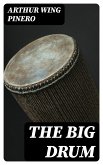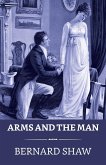Arthur Wing Pinero's "The Squire" is a masterfully crafted play that delves into the intricacies of human relationships and societal expectations in late Victorian England. With its sharp dialogues, robust characters, and underlying themes of class and ambition, Pinero offers a vivid portrayal of the tensions between personal desires and societal constraints. The play typifies the era's shift from melodrama to more nuanced character studies, employing humor and wit to explore the moral dilemmas faced by its protagonists in a rapidly changing world. Pinero, a prominent figure in the development of modern theatre, was deeply influenced by his own experiences as a playwright and actor. His intimate understanding of the theatrical world and the social mores of his time informed his writing, providing a keenly observant lens through which to scrutinize the behavior of his characters. Pinero's background, including a rise from humble beginnings to literary acclaim, lends authenticity to the challenges faced by the characters in "The Squire" and reflects his own struggles against social barriers. Readers of classic literature and theatre enthusiasts will find "The Squire" both a compelling and thought-provoking exploration of character dynamics and societal norms. Its relevance endures, echoing contemporary themes of ambition, class conflict, and personal authenticity, making it an essential addition to any literary collection.
Dieser Download kann aus rechtlichen Gründen nur mit Rechnungsadresse in A, B, BG, CY, CZ, D, DK, EW, E, FIN, F, GR, H, IRL, I, LT, L, LR, M, NL, PL, P, R, S, SLO, SK ausgeliefert werden.









